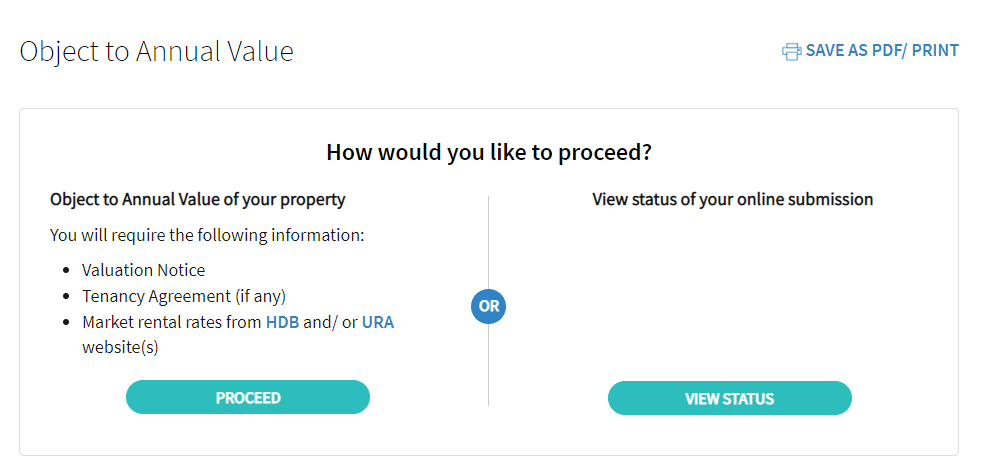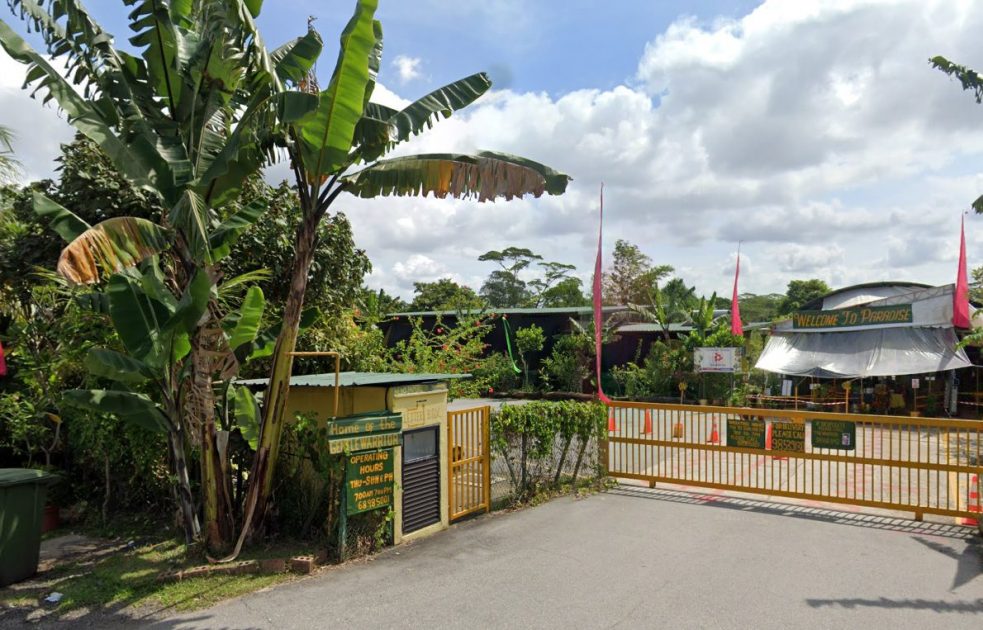Most of us know that our annual property tax is calculated based on its estimated gross annual rent (assuming that the property’s rented out to say, a ‘hypothetical tenant’).
This projected rental income (excluding the cost of furnishings, furniture and maintenance fees) is based on property and room types, which will then be used to derive the property tax you have to pay to the Inland Revenue Authority of Singapore, or IRAS (usually by 31 January annually).
For example, a 4-room HDB flat in Jurong West has a median annual value (as of 2021) of S$10,140 (or S$845 a month). Based on this value, the property tax payable is S$149.60. You can, if you wish, object to the annual value of your property by providing a valuation notice, tenancy agreement (if any) and market rental rates from HDB and/or URA websites to IRAS.

But what if the property is non-rentable (ie. subject to authorities’ approval) or is so unique that there’s no basis to measure rental? What then will be its benchmarked annual value (AV) for taxation purposes?
This case surfaced when Bollywood Veggies (BV), which operates its vegetable farm and various buildings in Lim Chu Kang, appealed to the Valuation Review Board on IRAS Chief Assessor’s assessment of its property’s annual value.
Some of BV’s buildings have existed since 2001 and are used as a bistro, event space, office and workers’ quarters.

In 2018, besides valuing BV’s land based on how much lease BV has been paying the Singapore Land Authority, the Assessor was unable to assess its buildings based on rent, so it valued BV’s buildings based on 5% of its total building costs.
It should also be noted that because BV’s lease of the land with SLA is for agricultural purposes, it must seek SLA’s approval should it chooses to sub-let any of its buildings.
Based on court documents, the annual rent payable for the land was increased from S$57,300 to S$77,400 for the Year of Assessment 2018. This was based on a Jones Lang LaSalle (JLL) report.
For the buildings, 5% of total building costs (S$593k – based on an email to IRAS on 25 October 2010) translates to S$29,650.
So for the Year of Assessment 2018, the assessed AV of S$107,100 (rounded up) was the total of the annual land rent and the estimated value of the buildings.
Upon receiving the assessment, BV appealed to the VRB that the building costs (S$593k) should not be included as part of its AV assessment. However, the appeal was dismissed, which led to the proceedings in the High Court.
After three years, the court’s eventual decision was based on three key factors:
- The amended assessment of the property’s annual value (ie. the increase in annual rent payable for the land) was based on a Jones Lang LaSalle report which BV had tendered and relied on.
- Based on ss 2(1) and 6(1) of the Property Tax Act, tax is chargeable on buildings, even if the buildings could not be sublet (in the case of it being part of a farm) or erected on relatively short leases.
- Finally, the VRB found that the Chief Assessor made no error in relying on s 2(3)(a) of the Property Tax Act in assessing the value of the buildings at S$29,500 (5% of building costs). The court also rejected BV’s argument that the Chief Assessor had erred in waiting until 2014 to include the value of the buildings in assessing AV when some structures have been erected since 2001. This was because s 20(1) of the Property Tax Act allows the Chief Assessor to amend the AV of a property where it has become inaccurate in any material particular.

The cost of buildings used for taxation assessment
BV also argued that the figure of S$593k which the Chief Assessor relied on as building costs is unreliable. This is because the figure was provided to IRAS in October 2010 by the architect who was doing Alteration and Addition (A&A) works at the property. The architect then wrote to IRAS the following day requesting IRAS to correspond with BV direct and treat its earlier submission (of the S$593k) as void.
This S$593k figure was also argued to be contentious as there was nothing linking the A&A works in 2009/2010 with the estimated value of the property in 2018. Coupled with the fact that certain buildings were erected earlier in 2001 and 2004 and weren’t part of the AV assessment, BV’s argument is that the assessment methodology was flawed.
BV also argued that the JLL report did not specifically value the buildings on the property but made references to them, suggesting that the annual rent valuation of the land (S$77,400) included the buildings’ collective value, or they were viewed as negligible.
In counter-arguments, the Chief Assessor responded that the time difference between the building cost mentioned in 2010 and the estimated value in 2018, and the erroneous usage of the S$593k figure (which the architect had requested to void), were not raised with IRAS prior to the proceedings with the VRB.
Also, while the JLL report did mention the buildings were in generally good condition, no other method had been put forward by BV to determine the estimated value of the buildings.
Finally, the Chief Assessor argued that he had sought to obtain more information on building costs, but BV was not forthcoming. So the figure of S$593k, which was provided by the architect as part of the A&A works in 2010, became the only information available for his assessment.
The case, which concluded on October 2021, saw BV’s appeal dismissed. In closing, the court referenced s 2(1) of the Property Tax Act, which refers to rent, or the “gross amount at which [a property] can be reasonably be expected to be let from year to year”.
It also states that “such rent is only a notional or hypothetical one. A prohibition against renting out a property – as in the present case where the lease with the SLA prohibited the appellant (BV) from subletting the property without its approval – does not prevent the rental value from being ascribed to the same. Valuation under a hypothetical tenancy has been possible even where it is clear that there could be no hypothetical tenant other than the actual occupier.”
So, based on this case, even if you own properties that prevent you from subletting them out, and you feel they should be excluded from the annual value somehow, they are still subject to being valued through whatever means possible.
As Benjamin Franklin wrote in his 1789 letter to French scientist, Jean-Baptiste Leroy, “nothing is certain but death and taxes.”
–
Do you own property where you’ve disputed the annual value before? Let us know in the comments section below or on our Facebook post.
If you found this article helpful, check out What is the Annual Value of a property and how do I check mine? and Singapore Budget 2022: Potential impact on property owners in a post-pandemic world.
Looking for a property? Find the home of your dreams today on Singapore’s fastest-growing property portal 99.co! If you would like to estimate the potential value of your property, check out 99.co’s Property Value Tool for free. Also, don’t forget to join our Facebook community page or Telegram chat group! Meanwhile, if you have an interesting property-related story to share with us, drop us a message here — and we’ll review it and get back to you.
The post Assessing annual value of non-rentable property: Bollywood Veggies’ case against IRAS’ Chief Assessor appeared first on 99.co.

